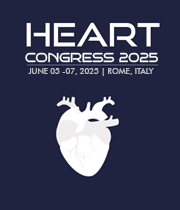Title : AI in healthcare: Challenges & limitations in radiology
Abstract:
Artificial Intelligence (AI) and Machine Learning (ML) are rapidly reshaping the healthcare landscape, with radiology emerging as one of the earliest and most promising adopters of these technologies. AI offers significant potential to enhance diagnostic accuracy, streamline operational workflows and improve patient outcomes. This presentation explores the opportunities, challenges and limitations associated with adopting AI within radiology departments, using a case study-based approach. The study methodology involved conducting structured interviews with practicing radiologists to capture firsthand insights into their experiences, operational challenges, and expectations from AI and ML applications in diagnostic imaging.
The findings highlight several critical concerns, including data security vulnerabilities, regulatory compliance hurdles, high implementation and maintenance costs, ethical dilemmas, and resistance from the existing workforce towards embracing new technologies. These barriers reflect both technical and human-centered complexities that radiology departments must navigate when integrating AI solutions.
The presentation concludes that while AI cannot replace the clinical judgment and expertise of radiologists, its thoughtful and strategic integration as a supportive tool can enhance workflow efficiencies, improve diagnostic precision, and ultimately lead to better patient care outcomes. The synergy between AI-driven analytics and human expertise holds immense potential to transform radiological practices. However, realising these benefits depends on proactively addressing the identified challenges through targeted workforce transformation, robust data governance, ethical safeguards, and structured change management initiatives.



